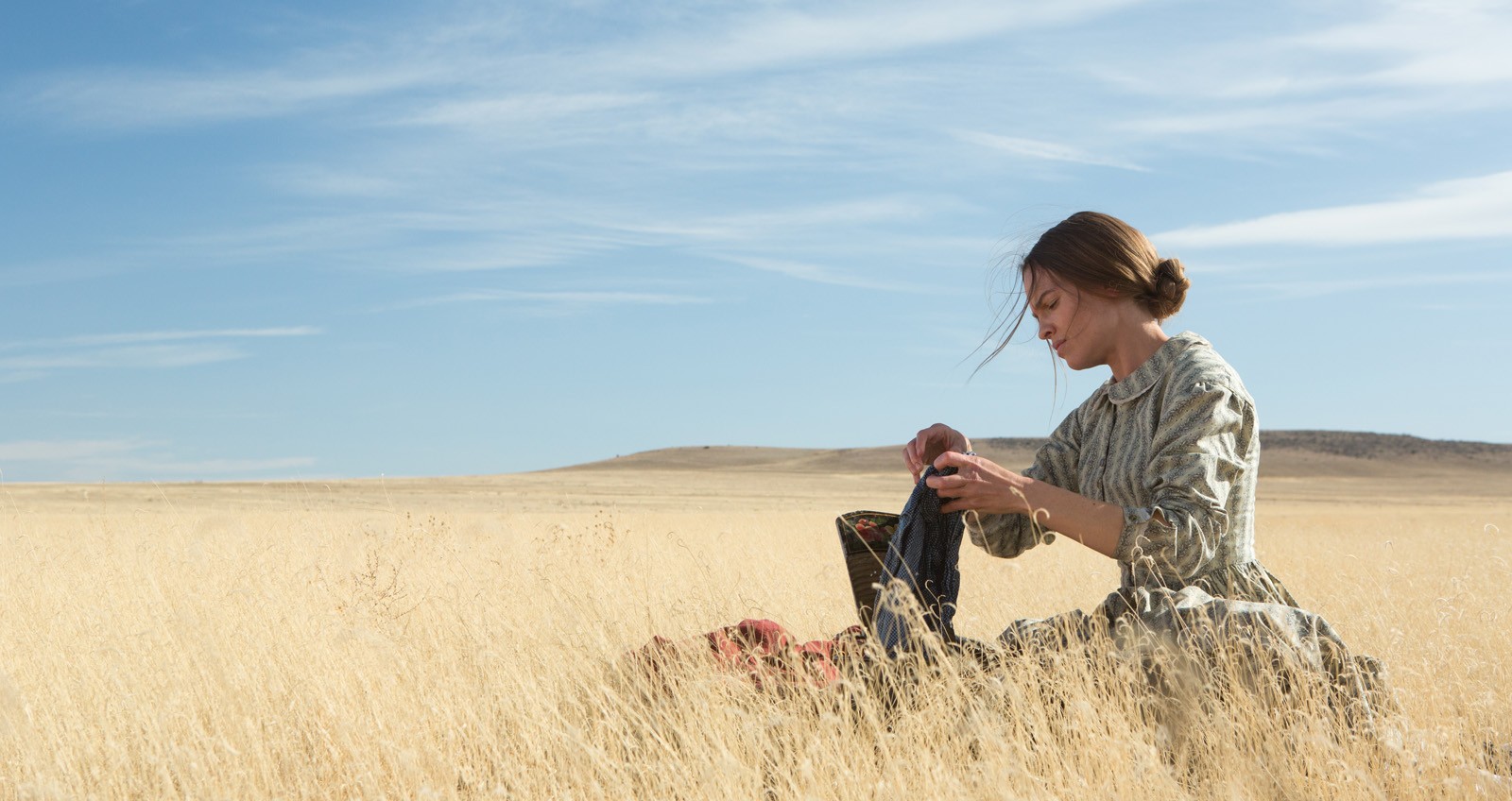Tommy Lee Jones tries his hand behind the camera for the second time, the first being with 2005’s ‘The Three Burials of Melquiades Estrada’, this time adapting Glendon Swarthout’s 1988 novel of the same name (incidentally Swarthout also wrote ‘The Shootist’, the big-screen adaptation of which was to be John Wayne’s final film in 1976) and co-writing the screenplay with Kieran Fitzgerald and Wesley A. Oliver. Taking place in the American Midwest of the 1850’s (the continuous forty eight States are divided into the West, Midwest, South and Northeast, for those unaware), specifically Nebraska and Iowa, Jones plays George Briggs, a scallywag strung up by a rope and left to perish when he is rescued by Hilary Swank’s Mary Bee Cuddy who, by way of a life debt, enlists him to help her in her temporary role of ‘homesman’ transporting three troubled ladies back to more civilised territories, a role which, as you may imagine from the name, is normally reserved for men.
Saying these three women, played by Miranda Otto, Sonja Richter and Grace Gummer, are troubled is a bit of an understatement, they are in fact all locked in the wagon for everyone’s general safety, including their own, the three having lost their minds whilst living on the harsh and unforgiving Nebraska plains. The western genre often focuses heavily on the terrain and landscape, the wilderness giving rise to questions of morality and justice where no law exists or, as in this case, encouraging aberrant character traits and/or destruction, the problem is none of the three women ever really convince that they’ve lost their marbles, and the first half of the film is not well paced or put together at all. Swank and Jones are both solid in their roles, as one would expect, and the idiosyncrasies of their relationship and by extension the film begin to kick in halfway through, markedly improving matters as more interesting events begin to develop. With brief support from John Lithgow, Meryl Streep, William Fichtner, James Spader and David Dencik, this adds its own unique flavour to the genre, it’s just a shame central elements of it are somewhat undercooked.

